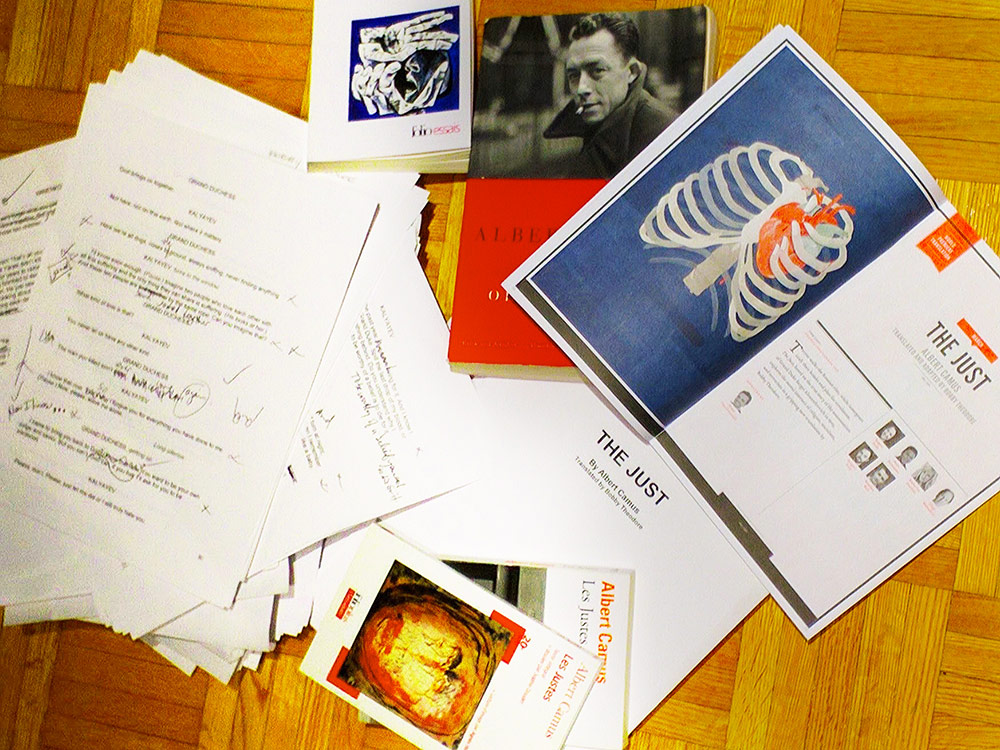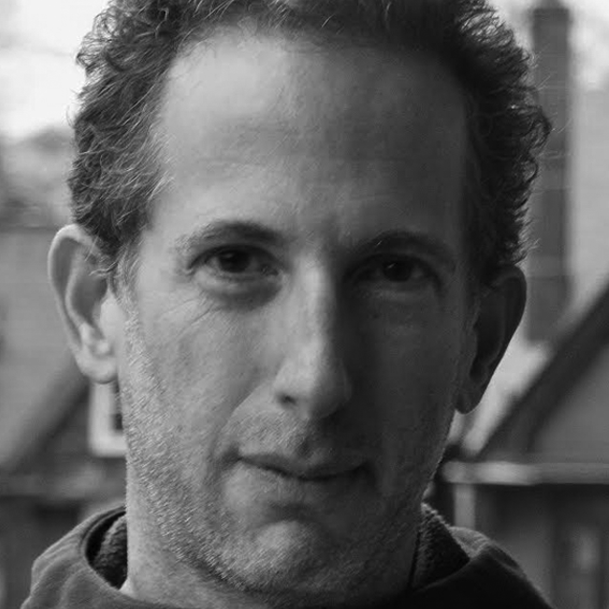The Accidental Translator
Six actors are pretending to be terrorists in 1905 Russia. They are in a cold and damp room in the west end of Toronto. As it happens, it is also very cold and damp in the world of the play they are rehearsing: The Just by Albert Camus. In his play, Camus’s characters all believe that if they put an end to tyranny by killing the Grand Duke (and those like him), they will bring humanity, and ultimately warmth, back to their world. A bomb will explode, a man will die, another man will hang and pay for their deadly actions, and perhaps one day “Russia will be beautiful…”
I don’t envy those six actors. They are inhabiting a terrible world. The characters they’re portraying feel they have no choice but to effect change through violence. They are each prepared to sacrifice their own humanity in order to save the people of Russia. It’s a rotten paradoxical decision they’re being forced to make. I don’t know how you find your way into a drama like this.
I guess that’s because I came to this play like I came to this work: by accident. I’m a naïve translator. I have no training. No qualifications other than that I speak French, I “like” to write (I don’t. It’s torture.), and now I’ve been translating plays for almost twenty years. My naïveté is what makes me succeed at what I do. I rely a lot on instinct, my gut. And dictionaries. My thumbs are scarred by their razor pages. When I translate, it’s a high-wire act. I don’t dare look down. I squeeze my eyes shut and move one foot in front of the other. Otherwise, I’d never type a single word. I like to tell people that when I translate, I get inside the playwright’s skin, wearing it like a cloak, like a child playing make-believe.
Every play I’ve ever translated was handed to me. A gift. And like all the others before, The Just was thrust into my hands. At first, I thought, “Who am I to translate Camus?” Surely a “real” translator should take on the job. But this play was like a bomb. When I first read it, I was shaken, devastated, and breathless. I couldn’t ignore its power. I had to act. And so, very recently, The Just, directed by Frank Cox-O’Connell, premiered at Soulpepper in Toronto. As far as I know, this is the first time the play has been produced professionally, in English, in Canada.
When I started working on translating The Just, two years ago, there were some very clear obstacles. A major one was the fact that up until then I’d only translated work by living playwrights—playwrights with phones and internet who I could contact when faced with a tricky passage or something needing clarification. My regular process is to go over every translation, line by line, word by word, with the playwright I’m working with, to make sure I’m not screwing anything up. And we try to agree on everything. But poor Albert died in 1960 and I’m a translator, not a medium, damn it. Though, there’ve been some sleepless nights where I summoned Albert.
He never showed.
So I’ve had to take some liberties, make some leaps, and cut a line here and there—something I’ve never done before.
Frank wanted to use a new translation for his production; all translations are of a time, they have a shelf life. And we felt our audience might need some subtle contemporary “bridges” or references to connect to the subject and the characters’ extreme actions. The original audience in 1949 would have identified with the need to resist and take action against an oppressor, as they had just experienced the occupation of France by Nazi forces. They surely related to the plight of the people in 1905 Moscow. Would an audience today have the same connection? Camus wanted to use the Russian Revolution as a paradigm. This wasn’t a period piece, it was very contemporary. But as I made my first pass through the text, I started getting bogged down by the emerging style of my translation. It was feeling too “old-timey,” operatic even. Something that worked so well in French was just not working in English.
So now I needed to go through the entire play and attempt to move it into a more contemporary, spare, and less rhetorical tone. In French, the play was so alive. But my first drafts were stiff, like they were encased in rock. I needed to bang away with a chisel to free the trapped play so that it would resonate like the original. Countless drafts and several workshops later, I finally got there. I hope.
I’ve had a lot of help along the way. A lot. I got to attend the Glassco Translation Residency in Tadoussac, where I started the initial work with the support of my wonderful mentor, Linda Gaboriau. Later on in the process, Linda suffered across the table from me as we diligently went over every line of two different drafts, comparing each of them to the original. And this was after Frank and I spent weeks making some pretty ruthless cuts to a decent workshop draft. It turns out almost nothing could be cut and most of the cuts we’d made went back in. This is a play where every single line leads to the next.
The six actors are rehearsing. They are cradling this bomb of a play in their hands. And I kept my eyes closed until opening night…
Bobby Theodore’s translation of The Just just closed at Soulpepper. His translation of You Will Remember Me is running at Tarragon Theatre until April 10. For tickets or more information, click here.









Comments